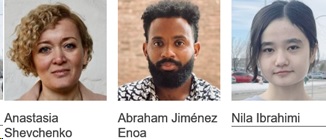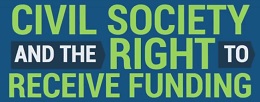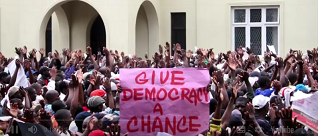
Los Convenios de Ginebra que se firmaron después de la Segunda Guerra Mundial, fueron modificaciones de tratados previos que habían existido durante casi un siglo con el propósito de hacerlos más abarcadores y precisos. Estos esfuerzos de concertación humanitaria se remontan al 22 de agosto de 1864.
Desde tiempos más recientes, los Convenios de Ginebra son un testimonio de los horrores de la guerra y los intentos de la comunidad global por aliviarlos. La protección del personal médico, la inmunidad de los civiles ante los ataques militares y la atención médica a los soldados heridos, independientemente de su lealtad, están garantizadas por estos tratados que regulan la responsabilidad humanitaria de los países en guerra.
La mayor parte del siglo XIX fue una época tumultuosa. Un gran porcentaje del mundo había estado involucrado en conflictos debido a la Guerra Civil en Estados Unidos, la Guerra de Crimea, la Guerra de Cerdeña y otras. Algunos de estos enfrentamientos fueron especialmente crueles y ocasionaron un elevadísimo número de muertos y soldados y civiles mental y/o físicamente incapacitados. Un mundo agotado por la guerra y sus consecuencias decidió tomar medidas para proteger a las personas afectadas por los efectos de los conflictos armados y se realizó un esfuerzo global para abordar estas preocupaciones humanitarias que desembocó en esa reunión en Ginebra, Suiza, en 1864.
- Hits: 797


 The applicants are 73 Russian non-Governmental organisations (NGOs) and, in some cases, their directors, in a total of 61 applications (the details are set out in the judgment). They are involved in the areas of civil-society issues, human rights, protection of the environment and cultural heritage, education, social security, and migration. They include some of the oldest and most established Russian organisations such as the Memorial Human Rights Centre, the Moscow Helsinki Group, LGBT organisation Coming Out, the Agora Association and the Committee against Torture.
The applicants are 73 Russian non-Governmental organisations (NGOs) and, in some cases, their directors, in a total of 61 applications (the details are set out in the judgment). They are involved in the areas of civil-society issues, human rights, protection of the environment and cultural heritage, education, social security, and migration. They include some of the oldest and most established Russian organisations such as the Memorial Human Rights Centre, the Moscow Helsinki Group, LGBT organisation Coming Out, the Agora Association and the Committee against Torture. 70 countries have been passed to restrict this right since 2012 (as reported by the International Center for Not-for-Profit Law - ICNL). These laws severely constrain the ability of CSOs to implement programs that serve their communities and ultimately threaten their sustainability.
70 countries have been passed to restrict this right since 2012 (as reported by the International Center for Not-for-Profit Law - ICNL). These laws severely constrain the ability of CSOs to implement programs that serve their communities and ultimately threaten their sustainability. manifested in various forms. CSOs need to be aware of their right to resources and how to respond in the face of government restrictions.
manifested in various forms. CSOs need to be aware of their right to resources and how to respond in the face of government restrictions.